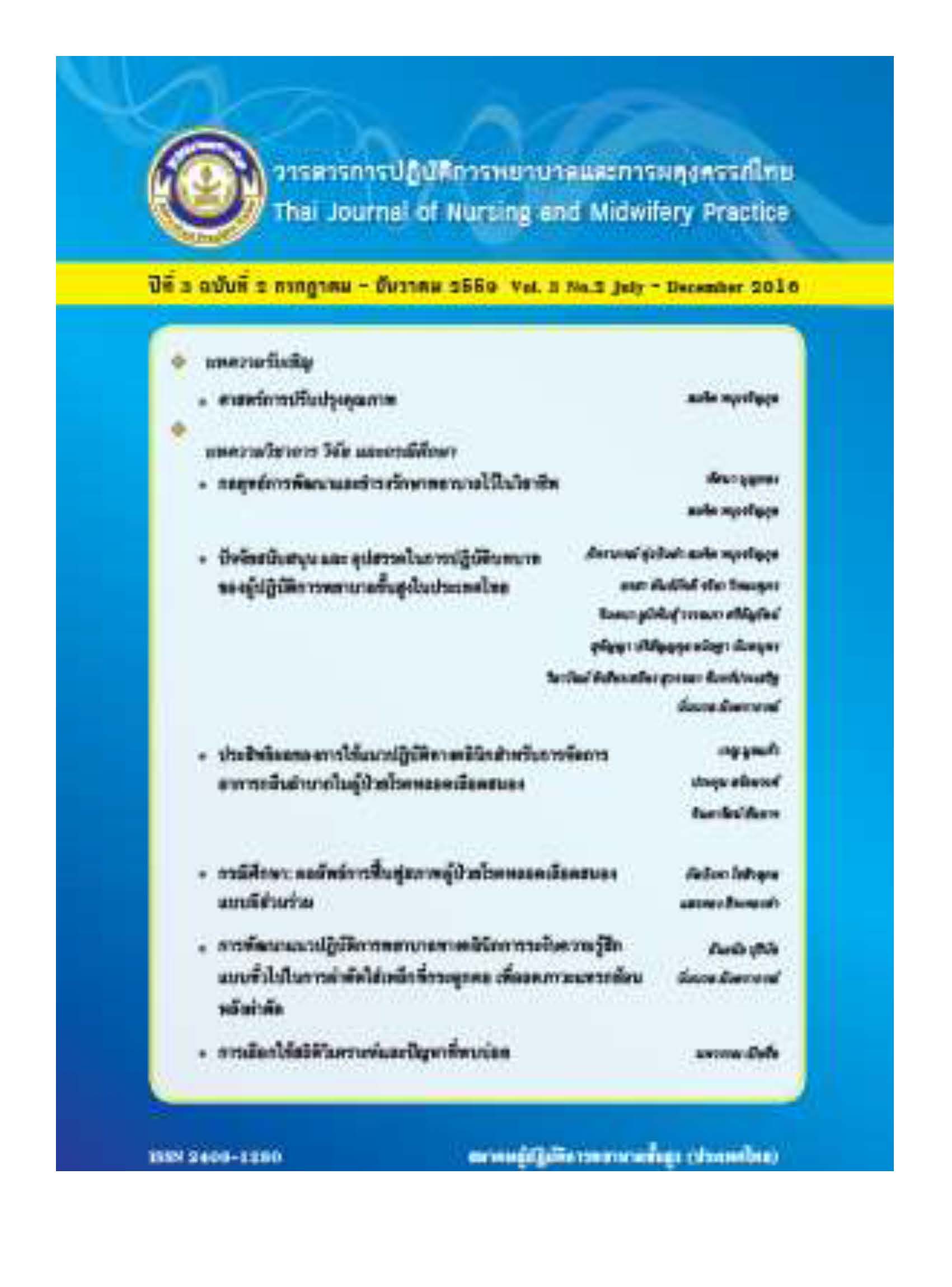Effectiveness of Implementing Clinical Practice Guidelines for Dysphagia Management Among Stroke Patients
Main Article Content
Abstract
Dysphagia is a significant complication that causes stroke patients to be at risk from aspiration pneumonia, which increases length of hospital stay and can be a cause of death. Effective dysphasia management is vital. This operation study aimed to explore the effectiveness of implementing clinical practice guideline (CPG) for dysphagia management among stroke patients. The guideline implementation was based on the CPGs implementation framework of the Australian National Health and Medical Research Council (1999). Subjects were divided into two groups. Group 1 included twenty six stroke patients admitted to the hospital before the CPG implementation. Four of these patients had dysphagia. Group 2 were 38 stroke patients who were admitted to the hospital during CPG implementation. Fourteen of these patients had dysphagia. The research instruments consisted of, 1) the CPGs for dysphagia management among stroke patients developed by Seetasan et al., 2) dysphagia screening instrument, and 3) the aspiration pneumonia evaluation form. The research instruments were approved for psychometric property. Data were analyzed using descriptive statistics.
Results revealed that before CPG implementation, the incidence of aspiration pneumonia was 4.01 per 1000 bed days, while there was no incidence of aspiration pneumonia during CPG implementation. It is suggested that CPG implementation can decrease the incidence of aspiration pneumonia. Therefore, this CPG should be used in order to prevent or to decrease aspiration pneumonia among stroke patients.


